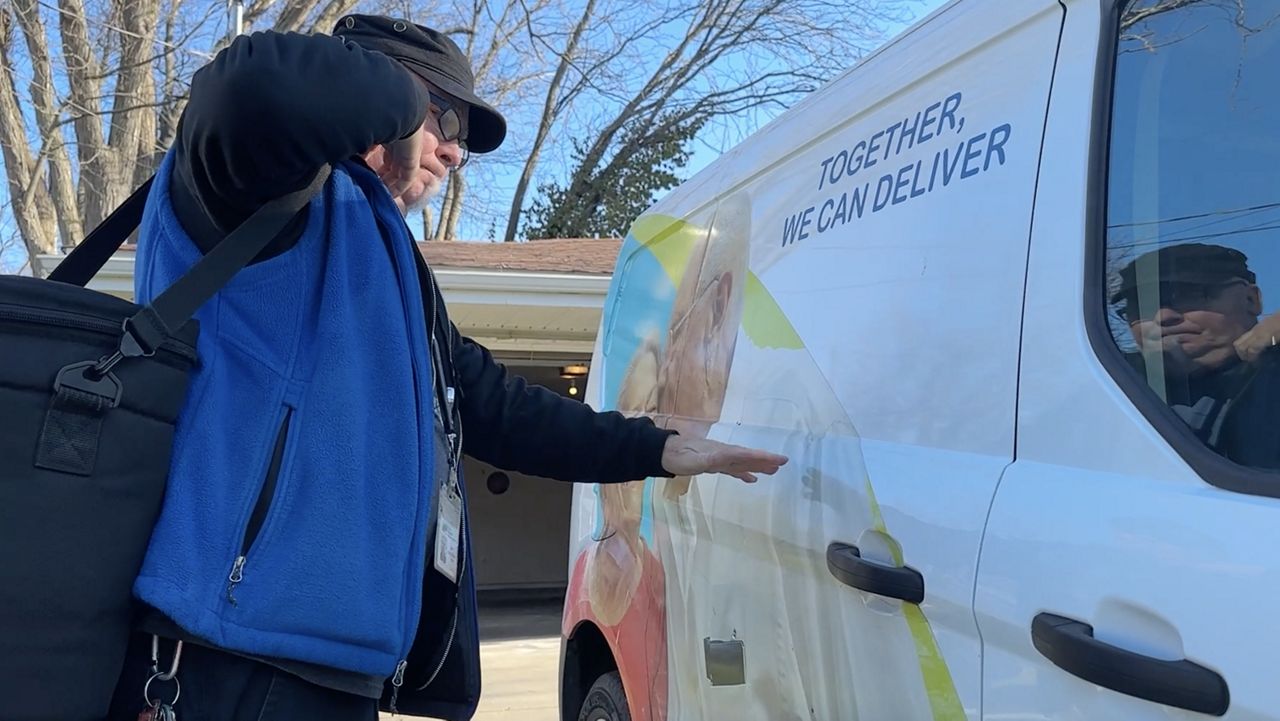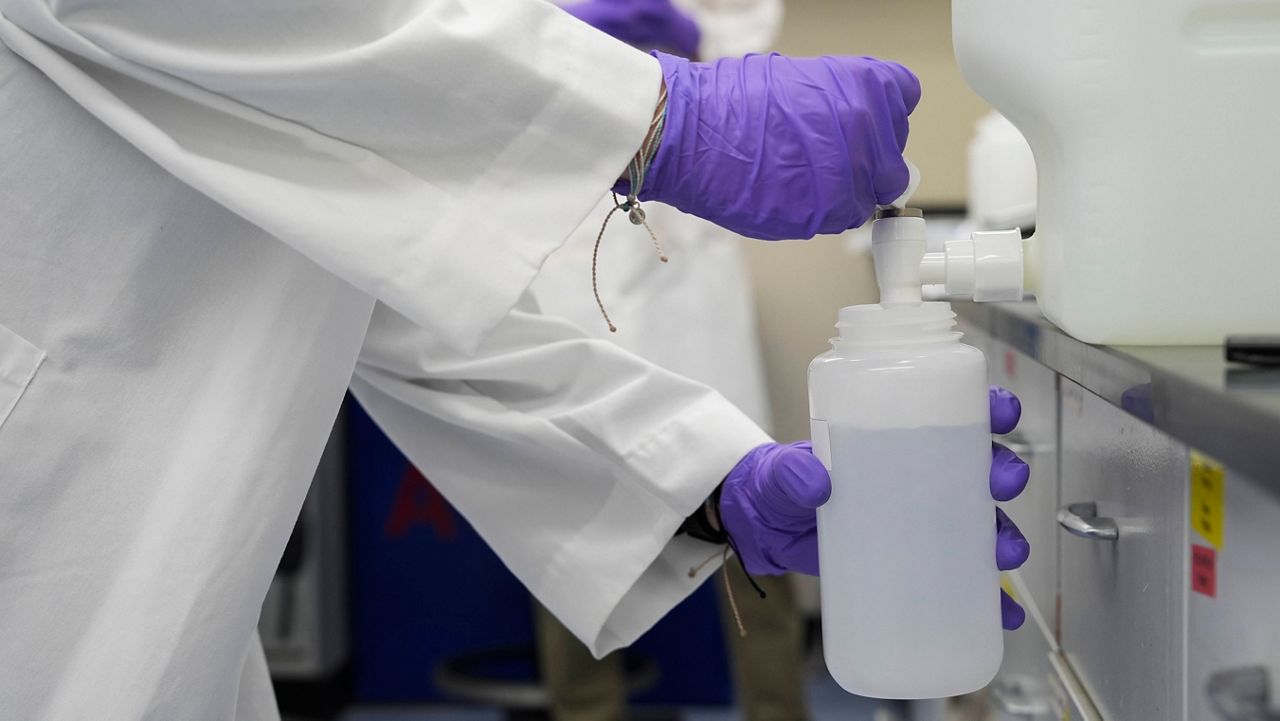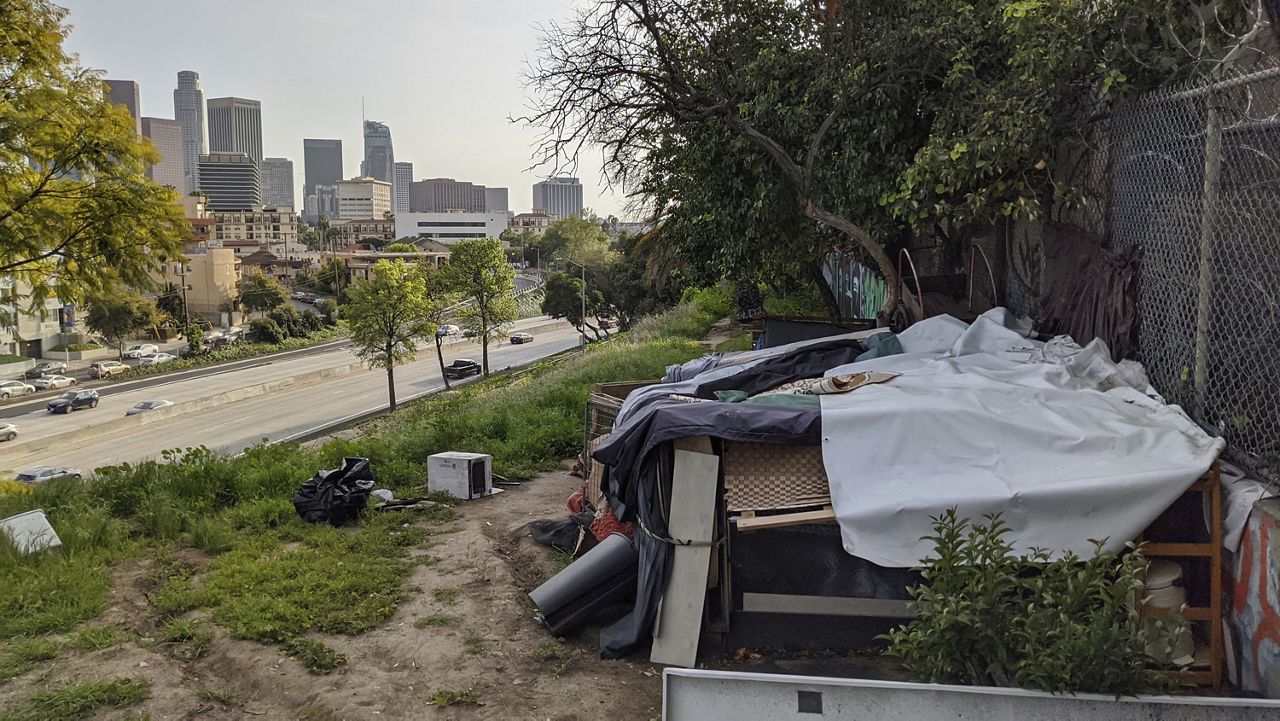LOS ANGELES — Diane Swick has lived in Juniper Hills for over 20 years and said she’s always felt safe in the rural community pushed up against the northern slope of the San Gabriel Mountains, accessible mostly by dirt roads.
“It is pretty hidden, and that’s the best part about it,” Swick said.
What You Need To Know
- A judge determines where offenders in the state’s Sexually Violent Predator Conditional Release Program will live after they’ve been released from a state mental hospital
- Some Antelope Valley residents have complained after judges have placed three offenders in that area since 2021
- There are currently 21 offenders in the conditional release program statewide, with another 21 awaiting placement into housing
- Christopher Hubbart has admitted to over 40 sexual assault dating back to 1972
But Swick is one of several residents who said they’ve lost their sense of peace after a judge’s recent decision to place Christopher Hubbart, also known as the Pillowcase Rapist, in a Juniper Hills home after spending most of the last 25 years in a state mental hospital.
“We never had to lock our doors,” said Swick, referring to 74-year-old Hubbart, whose nickname comes from the way he’d cover his victims’ heads with a pillowcase to muffle their screams.
“Now we have to lock our doors.”
Swick and others in the small North Los Angeles County community said they’re especially upset because Hubbart, who has admitted to over 40 sexual assaults since 1972, is the third such violent offender to be placed in the Antelope Valley area since 2021.
A judge placed Calvin Grassmier in a Little Rock home in 2021 and Lawtis Rhoden was placed in a Lancaster home in 2022. All three are part of the state’s Sexually Violent Predators Conditional Release Program.
The program transitions convicted offenders back into the community after finishing a prison sentence and mandated treatment in a state mental hospital. Participants are placed in housing and must participate in treatment and 24-7 supervision.
A judge approves their release and determines where they’ll live.
Another longtime Antelope Valley community advocate who lives near Hubbart is Mary Jeters. She questioned why judges have placed all three men in such proximity.
“Our little 20-square-mile area has all three [sexually violent predators] that are on release in LA County,” Jeters said. “They are all right here.”
She’s been vocal in her fight against sexually violent predator placements in the area, especially after a judge approved Grassmier’s move there.
“We don’t have much political representation because we are unincorporated. We have our wonderful town council people, but very few advocate for us,” she said.
Spectrum News reached out to California Department of State Hospitals, or DSH, the state agency overseeing these offenders, which said privacy laws limit what they’re able to disclose about how and where people are placed. Spectrum News also reached out to Hubbart by mail, but he did not respond.
A state audit of the program in Oct. 2024 found a small number of offenders live within five miles of each other.
“They just take them out of the mental hospital where most of them have been for decades, dropping them into the middle of a community, where everyone is terrified of them and hates them, it just isn’t fair to them or to the public,” Jeters said.
A judge first placed Hubbart in the Antelope Valley in 2014 through the conditional release program, but he was sent back to a state mental hospital in 2017 after violating terms of his release, including failing multiple polygraph tests, according to a news release from the LA County District Attorney’s Office.
Jeters and Swick also pointed out that local deputies are spread across the sprawling Antelope Valley, something Captain Joshua Bardon of the LA County Sheriff’s Department’s Palmdale Station acknowledges.
“There’s limited cellphone service or no cellphone service out here,” Bardon said. “The lighting is very dim out here at night. There is a lack of security-type footage, surveillance cameras as well.”
“Those are all concerns we brought to light in the placement hearing as reasons why we felt that placement wasn’t a good thing for out here in the rural area,” he said.
Bardon said he’s increased law enforcement presence near Hubbart’s home and assigned a deputy to focus on Juniper Hills residents’ concerns, including long response times.
“On average, it’s been two hours for any type of a non-emergency routine call — that is no one is in harm’s way, something happened a week ago,” Bardon said. “A priority call, currently the average is 45 minutes and emergency calls are ten minutes.”
DSH contracts with Liberty Healthcare Corporation to run the sexually violent predator release program.
Liberty referred questions to DSH, who said through a spokesperson that participants are subject to constant GPS monitoring, unannounced home searches, polygraph exams, random urine screens for alcohol and illicit substances and other supervision tools.
“Data and research support that [Sexually Violent Predators Conditional Release Program] is the safest pathway for discharging SVP patients from the state hospital back into the community,” according to Ralph Montano with the Department of State Hospitals.
Montano said those in the conditional release program are three times less likely to be arrested again compared to those unconditionally released. There are currently 21 people in the program and another 21 approved for release from a state hospital who are awaiting placement in housing this year.
On average, each participant costs $343,000 a year to treat, house, and supervise. By comparison, it costs on average $393,105 each year for in-patient treatment in a state mental hospital, Montano said.
Those costs are why one state lawmaker wants to change state laws that govern the program. State Sen. Brian Jones (R-Santee) requested an audit released late last year that showed a significant cost increase and an average wait of 17 months to place an offender in housing.
The total cost of the program is $11.7 million this year, compared to $5.3 million in the fiscal year 2018-2019. In two years, the program is projected to cost $13.4 million, according to Montano.
The program’s audit did, however, find that only four percent of people in it re-offend. Despite that, Jones has introduced two senate bills focused on changing it.
The first bill would require DSH to ensure Liberty Healthcare considers public safety when securing housing for a sexually violent predator. The bill would also require the department to approve a potential location before Liberty signs a lease or rental agreement.
“They should never be released from prison, but if they are going to be released from prison, it’s the state’s responsibility to keep an eye on them,” Jones said.
The other bill proposes housing people in the program on state land.
“There should be a transitional housing situation, not just dumped into a neighborhood,” Jones said. “So that bill will require the state to look into developing a transitional housing program that the state operates, owns and runs.”
Supervisor Kathryn Barger represents the part of LA County that Hubbart now calls home. She spoke out against the judge’s decision to place him there.
LA County District Attorney agreed, saying in a statement: “The site proposed by the Department of State Hospitals and their contractor Liberty Healthcare poses serious difficulties with monitoring Hubbart and unacceptable safety risks for Juniper Hills and the surrounding communities.”
For Swick and Jeters, they vow to remain vigilant and organized in their opposition to Hubbart’s placement.
“It’s like, you know what? I live here too. Not you,” Swick said. “I was here first.”









